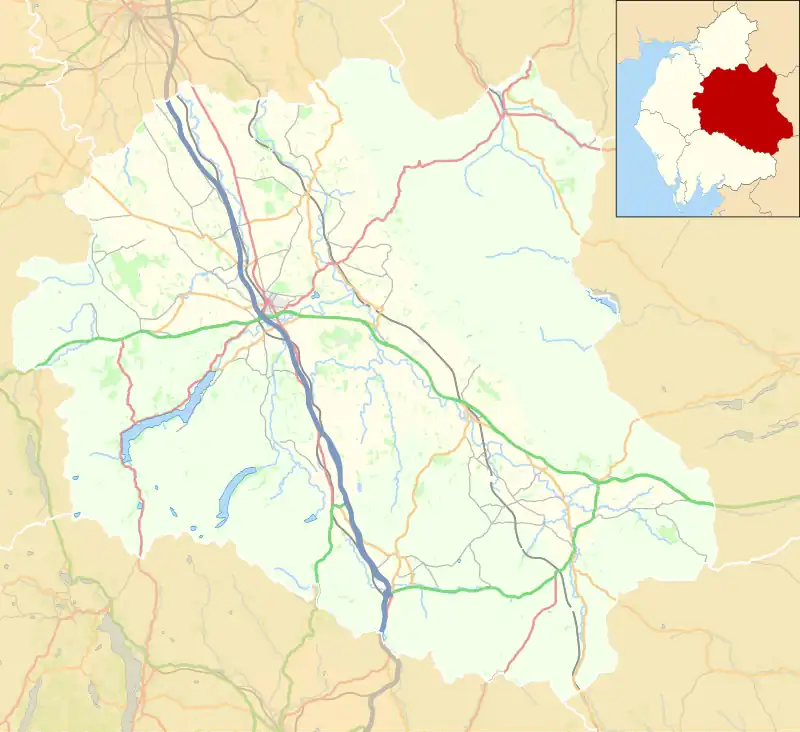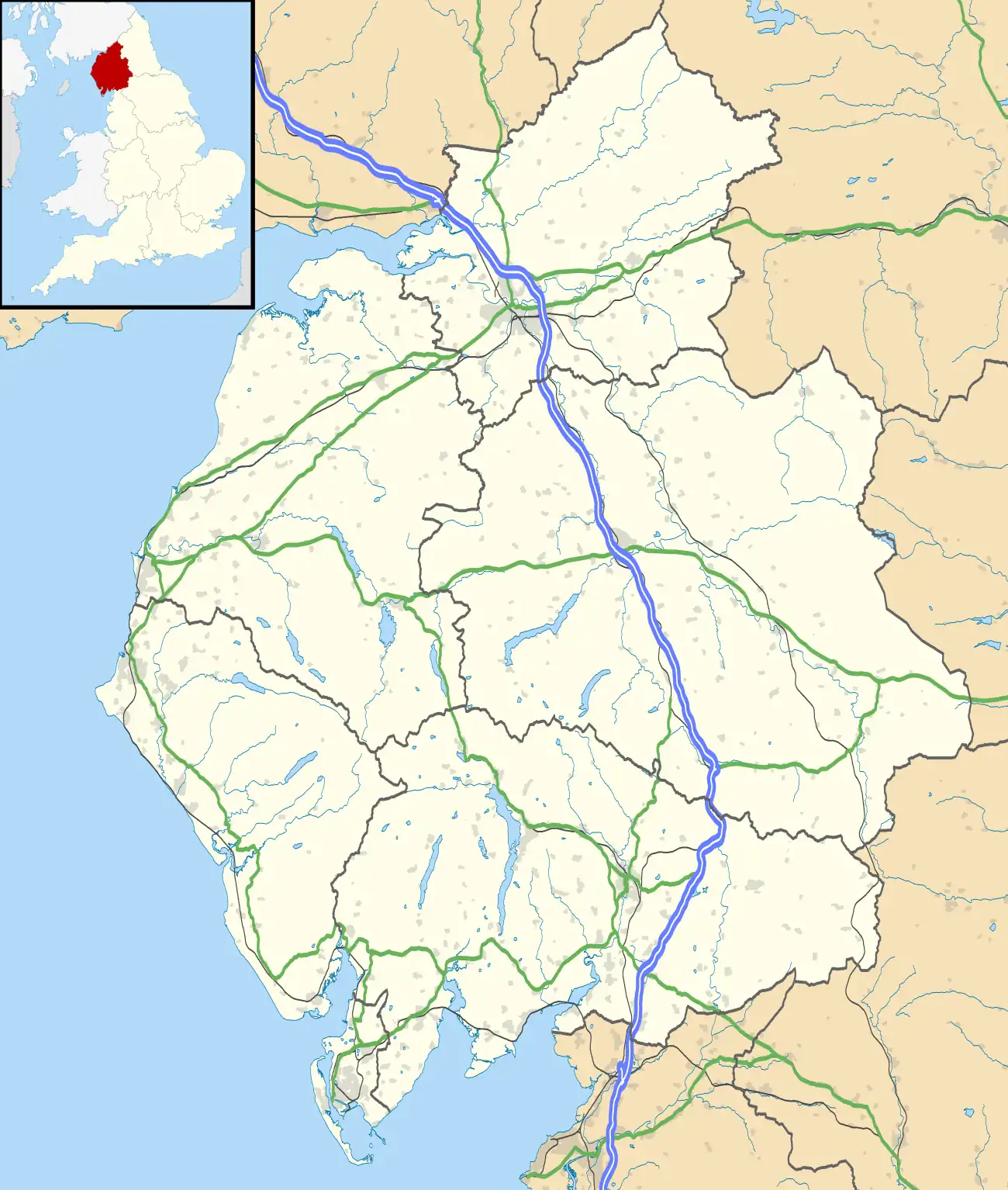| Lamonby | |
|---|---|
.jpg.webp) Cows west of Lamonby | |
| OS grid reference | NY408357 |
| Civil parish | |
| District | |
| Shire county | |
| Region | |
| Country | England |
| Sovereign state | United Kingdom |
| Post town | PENRITH |
| Postcode district | CA11 |
| Dialling code | 017684 |
| Police | Cumbria |
| Fire | Cumbria |
| Ambulance | North West |
| UK Parliament | |
Lamonby is an agricultural hamlet in the Eden district, in the county of Cumbria, England, about 2 km from the edge of the Lake District National Park. It is located near the B5305 road and the village of Skelton, in whose parish it lies. Public transport and social or commercial facilities are absent there.[1] The surname Lamonby originates from the hamlet.[2]
History
The name "Lambenemy" is recorded for the hamlet in 1257.[3] Limestone was quarried at Lamonby in earlier centuries.[4] A topographical dictionary of 1808 records 43 houses and 244 inhabitants.[5]
Lamonby Hall, a Grade II listed building, is described as late 16th- or early 17th-century with 20th-century alterations. It is built of large blocks of sandstone rubble with cement rendering and a greenslate roof with banded sandstone chimney stacks. After the Reformation, the hall is said to have included a Roman Catholic chapel. In the reign of Elizabeth, a certain Juliana Buckle of Yorkshire bought the hall on account of the chapel and kept a priest there for as long as it remained safe to do so.[6] The chapel appears to be the origin of a piece of floral carving used in the large, segmental-arched main fireplace.[7]
Also listed Grade II are the thatched Lamonby Farm House and barns (mid-17th-century with 19th- and 20th-century alterations) and Lamonby House and barns (1703 with 19th-century additions).[8] Two cottages and a barn in Lamonby are said to be among the few surviving clay-built houses in Cumbria. They are built on stone foundations and have a cruck construction of curved timbers meeting at the roof ridge.[9]
"Lammonby" on 28 January 1845 was the scene of a notoriously brutal infanticide by a drunken mother. According to The Times of a few days later, "On Tuesday evening, the 28th ult., [the mother] made up a large fire in the kitchen of her own house, with the determination of sacrificing her child in the flames.... She stripped off all the child's clothes and hid them in a hole behind the inner door of the ashmidden, and having done so took the child by its legs and arms and literally roasted it to death."[10]
Wind farm
A planning application for a wind farm of five 100-metre turbines at Lamonby was submitted in 2005 by a power company, E.ON UK. The application was withdrawn in March 2009, after 700 letters of objection had been received.[11]
See also
References
- ↑ Parish Action Plan, c. 2009. Retrieved 25 August 2015.
- ↑ "Surname Database: Lamonby Last Name Origin".
- ↑ David Mills: A Dictionary of British Place Names (Oxford, United Kingdom: Oxford UP, 2011 [1991]).
- ↑ Benjamin Martin: The Natural History of England... (London, 1763), p. 325 Retrieved 26 August 2015.
- ↑ Benjamin Pitts Capper Esq.: A Topographical Dictionary of the United Kingdom... (London, 1808, alphabetical). Retrieved 26 August 2015.
- ↑ The History and Topography of the Counties of Cumberland and Westmoreland (London, 1860) Retrieved 26 August 2015.
- ↑ British Listed Buildings. Retrieved 25 August 2015.
- ↑ British Listed Buildings. Retrieved 26 August 2015.
- ↑ The Buildings of the Countryside, 1500–1750, ed. M. W. Barley (Cambridge, United Kingdom: Cambridge UP, 1990), p. 71. Retrieved 26 August 2015.
- ↑ Emma Butcher: "A 'most barbarous and revolting murder'". History Today, Vol 65/8, August 2015, p. 3.
- ↑ Cumberland & Westmorland Herald, 6 March 2009. Retrieved 26 August 2015.
External links
- Cumbria County History Trust: Skelton (nb: provisional research only – see Talk page)

